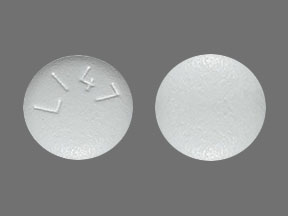
Cetirizine-pseudoephedrine ER Coupons & Savings Card – Discount Prices from $18.16
Generic for: Zyrtec-d allergy & congestion, Gnp all day allergy-d, Kls aller-tec d
My prescription
Edit
5-120MG, Cetirizine-pseudoephedrine ER (60 Tablet Extended Release 12 Hours)
Select pharmacy

Walgreens
$18.16
COUPON PRICE
Albertsons
$39.40
COUPON PRICE
Walmart
$53.04
COUPON PRICECetirizine-pseudoephedrine ER savings card
Show this card to your pharmacist
Walgreens
$18.16
BIN
ID
PCN
GRP
015995
LHKPY460667
GDC
DR33
Powered by
More prescriptions for nasal congestion
More prescriptions for nasal congestion
Price history for Allergy Relief/nasal Decongest (brand) & Cetirizine-pseudoephedrine ER (generic)
60 Tablet Extended Release 12 Hours, 5-120MG
Average retail price for Allergy Relief/nasal Decongest
Average retail price for Cetirizine-pseudoephedrine ER
Average SaveHealth price for Cetirizine-pseudoephedrine ER
Our price history data is based on aggregated prescription data collected from participating pharmacies in America. Our prescription data updates daily to reflect the latest price changes. If you notice a missing data point, it means there wasn't sufficient data available to generate a monetary value for that date.
We analyzed Cetirizine-pseudoephedrine ER prices for (5-120MG, 60 Tablet Extended Release 12 Hours) over the last 12 months. The average retail price was $40.20, while the average price using the SaveHealth discount card was $28.99. That's a savings of approximately 27.89% when using our Cetirizine-pseudoephedrine ER coupon.
Compared to the generic version, Allergy Relief/nasal Decongest had an average price of $19.37 over the same time period. With the SaveHealth savings card, Cetirizine-pseudoephedrine ER is -49.66% cheaper on average than Allergy Relief/nasal Decongest.
*Retail prices are based on pharmacy claims data, and may not be accurate when we don't have enough claims.
Cetirizine-pseudoephedrine ER dosage forms
Dosage Quantity Price from Per unit 5-120MG 60 Tablet Extended Release 12 Hours $42.36 $0.71 5-120MG 12 Tablet Extended Release 12 Hours $15.67 $1.31 5-120MG 24 Tablet Extended Release 12 Hours $22.34 $0.93
| Dosage | Quantity | Price from | Per unit |
|---|---|---|---|
| 5-120MG | 60 Tablet Extended Release 12 Hours | $42.36 | $0.71 |
| 5-120MG | 12 Tablet Extended Release 12 Hours | $15.67 | $1.31 |
| 5-120MG | 24 Tablet Extended Release 12 Hours | $22.34 | $0.93 |
